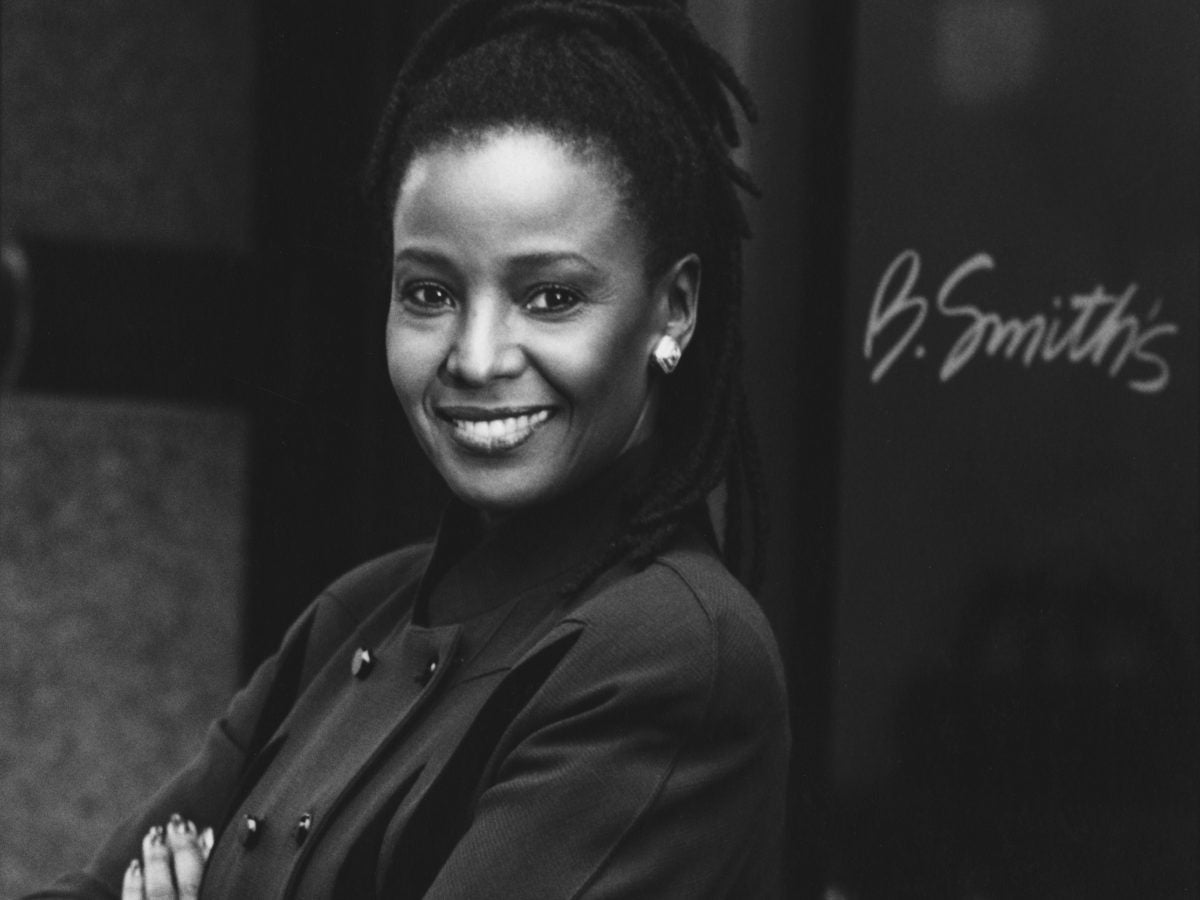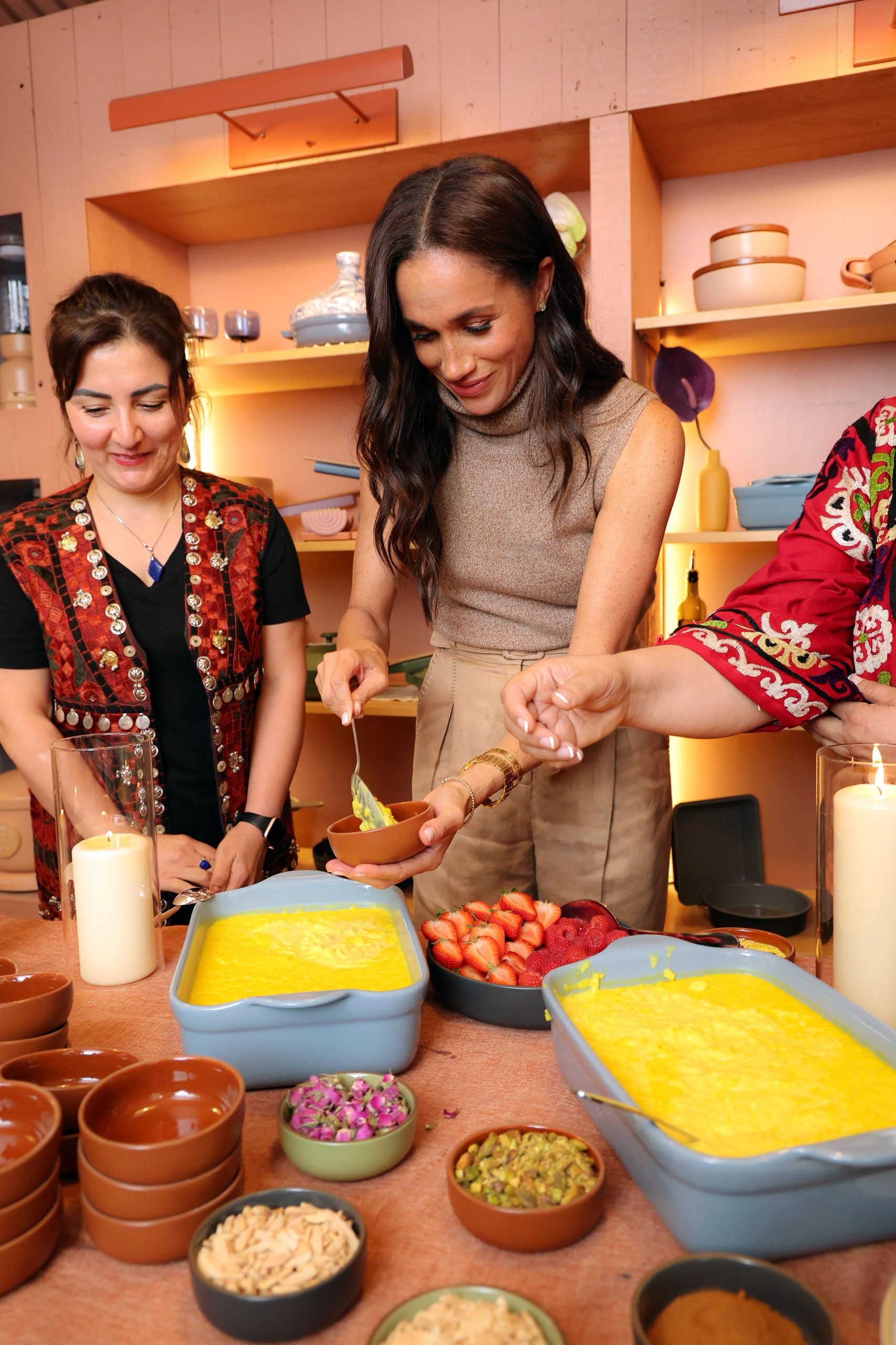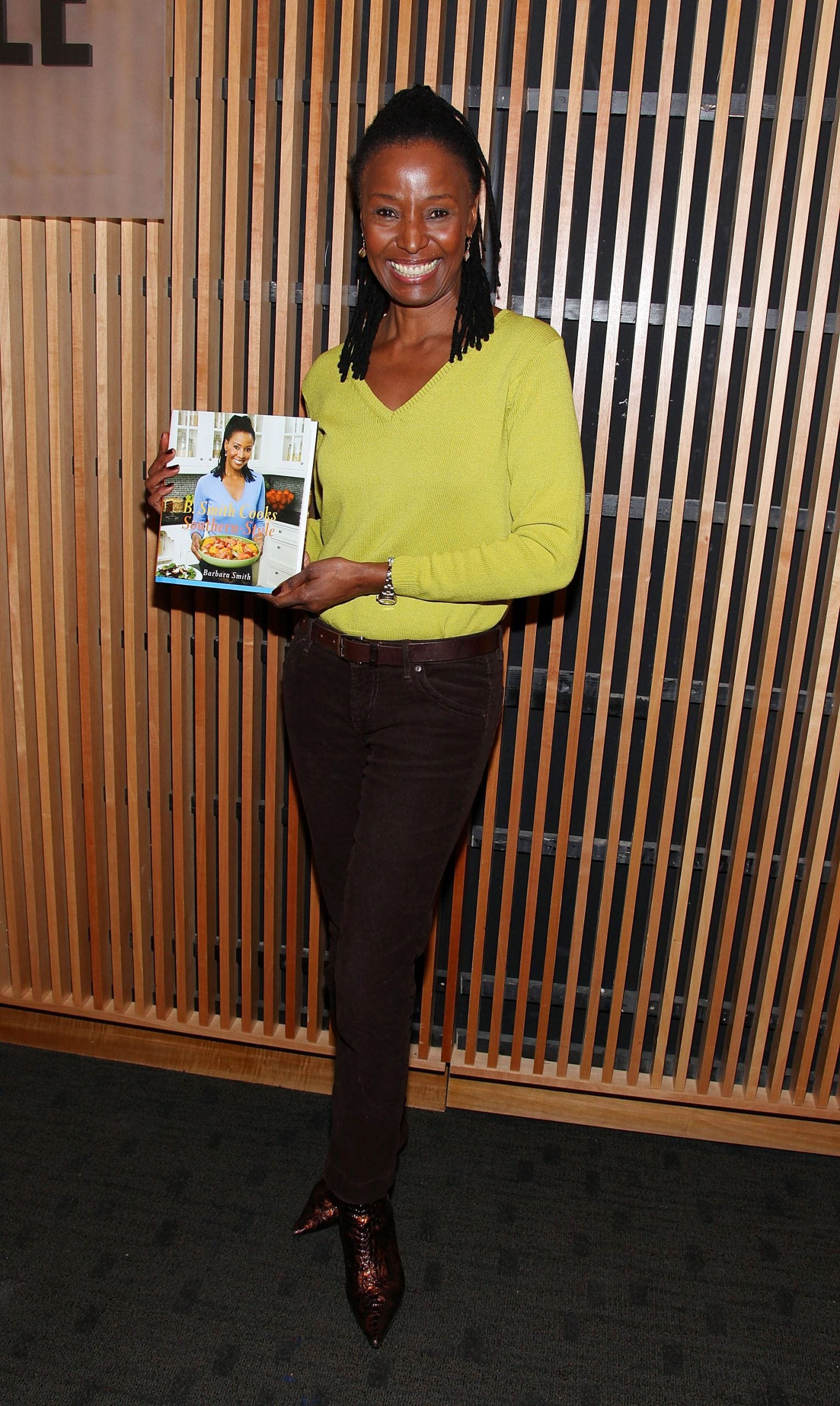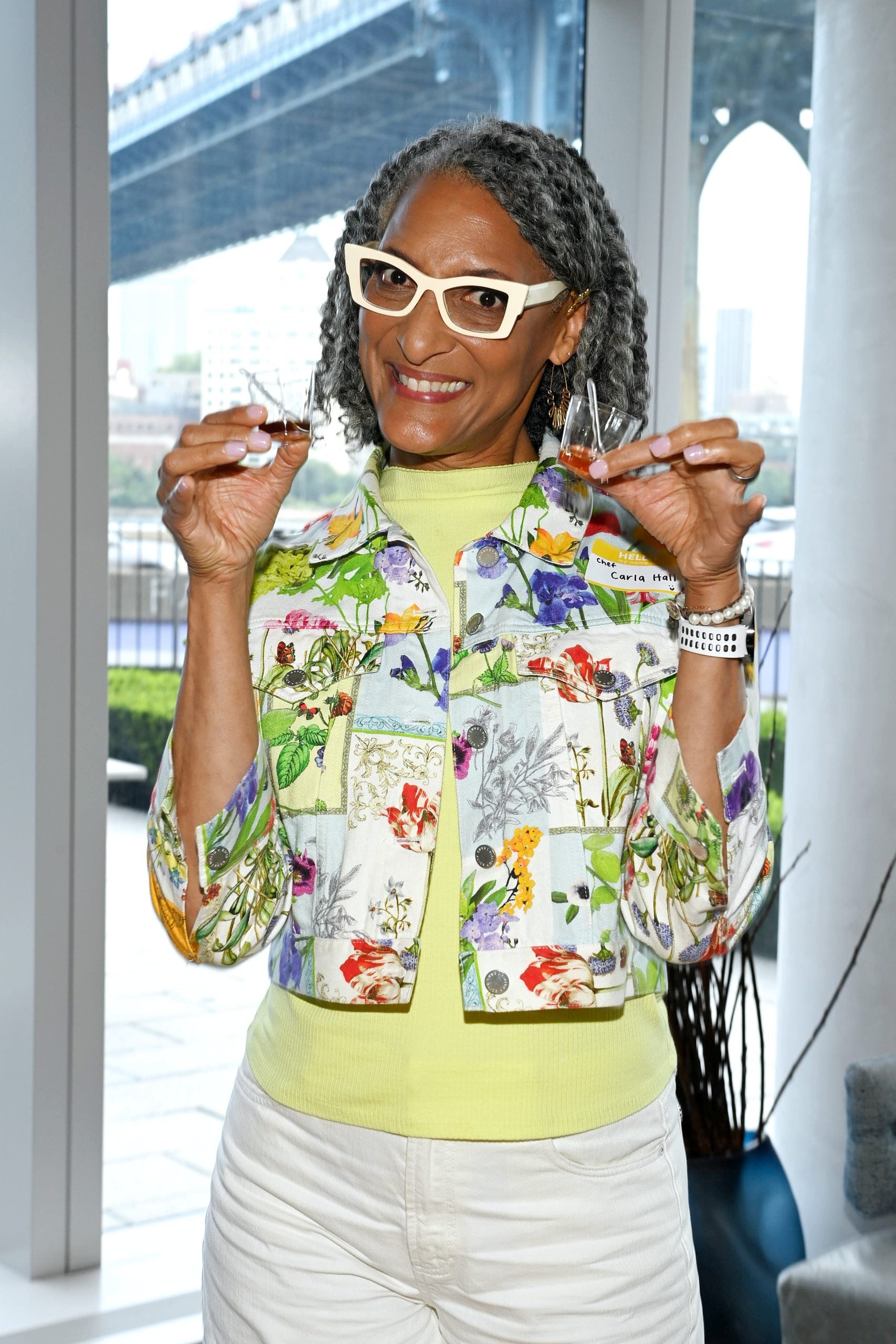
Earlier this year, the trailer for Meghan Markle’s upcoming Netflix series, With Love, Meghan, debuted. It offered a peek into her life in Montecito, California, years after Markle and her husband, Prince Harry, Duke of Sussex, left the U.K. and their roles as senior members of the Royal Family. We see her preparing picturesque meals, tending to a bountiful garden, harvesting fresh honey, poking pliant focaccia dough, and hosting and entertaining close celebrity friends. It’s a look at the Duchess of Sussex both behind the camera, as a producer, and in front of it, as a participant, all while reimagining what a lifestyle show could be, she explained.
However, mere hours after the trailer dropped, Eater published a review criticizing the series, which doesn’t premiere until March 4. The headline read, “I’m Already Bored with Meghan Markle’s New Netflix Series,” setting the tone for Amy McCarthy’s assessment, which deemed the entire series “incredibly dull” and questioned Markle’s place in the lifestyle space, asking, “What could she possibly teach us that Martha Stewart or Ina Garten haven’t already?”

McCarthy’s review quickly went viral, spreading across Instagram and sparking backlash that felt particularly strong among Black women, many of whom clocked something more insidious beneath her words. The problem here is not her lukewarm reaction to the trailer. It is her definitive dismissal based on an incomplete snapshot, a presumptive critique that sets an impossibly high bar for Markle, who has been subject to the unfair scrutiny and expectations placed on powerful Black women since she began a relationship with the Duke of Sussex. McCarthy’s criticism mirrors the same unreasonably high standards that Black women are often held to—an added layer of scrutiny that simply is not applied to their white counterparts, especially when Black women dare to step into spaces that have historically been reserved for others.
As a journalist, I understand the desire to be the first to publish a hot take that might provoke discussion, but as a Black woman, I also understand the subtle ways in which we are subject to a different kind of media scrutiny, one marked by gatekeeping and exclusion. The criticism directed at Markle is a reflection of the same structural forces that have historically kept Black women from fully occupying the realm of home and lifestyle, a lucrative space of which we’ve long been originators.
The Legacy of Black Women in Home and Lifestyle
From the colonial era through the trans-Atlantic slave trade, indentured servants and enslaved Black women were not just caretakers but the architects of this nation’s domestic life. Researcher and historian Robin Caldwell has extensively explored the legacy of Black women in the food and lifestyle space, illuminating a long history of those who set the tables and prepared the food but were never invited to sit at them. “Nobody talks home better than the descendants of the people who made other people’s homes,” she tells Essence. “But we have not always been acknowledged as the arbiters of great style, let alone consumers.” Despite being relegated to forced labor, these women laid the groundwork for the traditions, techniques, and recipes that would later be celebrated.
The post-Emancipation period became a fertile ground for reinvention. With the rise of Black education through HBCUs, vocational schools, and trade programs, Black women began to leverage their expertise in home economics into entrepreneurial ventures. Pioneers like Abby Fisher and Malinda Russell, the first Black women to publish cookbooks, turned their culinary skills into successful businesses. By the mid-20th century, figures like Lena Richard and Freda DeKnight took on groundbreaking roles in media, further expanding Black women’s influence in home and lifestyle. Richard, a trained chef and star of Lena Richard’s New Orleans Cook Book, became the first known Black person to host a cooking show in the U.S., despite the racial and economic barriers of the Jim Crow-era South. DeKnight, as the first food editor at Ebony magazine and mastermind behind the seminal column-turned-cookbook A Date with a Dish: A Cook Book of American Negro Recipes, elevated Black cuisine, validating the culinary traditions Black women had cultivated for so long. “Years ago […] some of our greatest culinary artists were unable to read or write,” DeKnight reflects in the preface. “But their ingenuity, mother wit, and good common sense made them masters in their profession without the aid of measuring spoons and cups, modern equipment or science.”

B. Smith and the Rise of Black Women as Lifestyle Gurus
When Barbara “B.” Smith entered the scene in the 1990s, the former cover model-turned-chef had carved out her own unique path as a bonafide lifestyle guru. Having built a massive multihyphenate career as a restaurateur, cookbook author, businesswoman, and host of her own TV show, Smith often remarked that her work was grounded in an intricate history that her white counterparts could not understand. “Martha Stewart has presented herself doing the things domestics and African Americans have done for years. We were always expected to redo the chairs and use everything in the garden,” she said in a 1997 New York Magazine profile. “This is the legacy that I was left. Martha just got there first.”
If the women before B. Smith opened the door for her, then she, alongside her trailblazing peers like Oprah Winfrey, Sheila Bridges, Phyllis Bowie, Patti LaBelle, Laila Ali and many others, designed and set bespoke banquet tables for future generations of Black women in the lifestyle space. Seated among them is Carla Hall, a 60-year-old Nashville native who first gained recognition on Bravo’s Top Chef in 2005 and later became a beloved co-host on ABC’s food and lifestyle talk show The Chew, which ran for seven seasons.

Intentionally centered at the intersection of self-expression, innovation, and representation, Hall is not merely content to participate but works to change the landscape itself. “Every time I step on stage, every time I do a book, it is all about my culture,” she says. “Sharing my culture with people.”
But Hall’s impact doesn’t stop with her own success. “I’ve been very vocal about pushing back on other judges and understanding why it’s important for all of us to be at the table,” she says, using her position to amplify the voices of Black creators and contestants in cooking competitions she judges. In addition to that, the recent launch of her self-funded digital magazine Sweet Heritage marks a pivotal moment in Hall’s career, a natural extension of how she lives her life, which has always centered on authenticity. “The fact that we didn’t have to ask anybody permission to do this, for me, that is a win,” Hall says. “I don’t want to have to ask for permission.”
A New Generation Rewriting the Rules
Carving out her own space with the same self-determined spirit, 28-year-old Akilah Releford Gould has built on the lessons of women like B. Smith and Carla Hall while adding her own fresh perspective. As an entrepreneur, business owner, and content creator, she is behind various southern California-based ventures: natural skincare and winery through her companies Mary Louise Cosmetics and Lucky Girl Rose, farming at her family’s Bloom Ranch, and entertaining and hosting as the creative director of each endeavor. “If there’s anyone who fits the sustainable homemaker profile, it is Black women,” she says.
Releford Gould’s passion for hosting and entertaining stems from her desire to inspire others. “The reason I enjoy posting about hosting is because I want other people to do it too,” she says, admitting that sometimes what she presents can seem unattainable. In a recent transparent video, she emphasized her goal to post more accessible content that appeals to a broader audience, so all feel welcome. Like Hall, Releford Gould has amplified her brand through social media, creating a space where Black women in home and lifestyle—both creators and consumers—don’t have to be bothered with gatekeepers.
Also, like Hall, she wants more representation. She’s noticed the lack of women who look like her on Pinterest, a platform she frequently uses for content creation. She believes that’s why her work resonates with so many: “It fits into the Pinterest aesthetic, but it’s not the average face you would see on Pinterest.” While she loves the joy her content brings to followers, she is saddened that her work is still seen as novel rather than “the norm.” Nevertheless, Releford Gould and countless other Black women making a name for themselves in the home and lifestyle space are becoming the change they want to see. From the enslaved women who set the tables for others to the moguls of today, the story of Black women in home and lifestyle is not one of erasure but of relentless reclamation. “We don’t need their approval any longer,” Caldwell states. “In the annals of history will be the truth.”
